Vaccines DO NOT Cause Autism. Period!
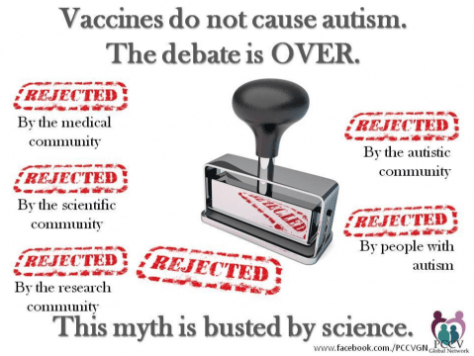
As a woman who is a mother to a beautiful autistic boy and who happens to also be a board-certified Pediatrician, Anesthesiologist, Pediatric Critical Care and Pediatric Anesthesia Doc, I can confidently and unequivocally proclaim that vaccines DO NOT cause Autism. I feel compelled to shout this from a mountain top, but I will refrain from that as I would like to keep my medical licenses and I do not currently reside near a mountain. On a more serious note though, the amount of uninformed/misinformed (and often quite loud) voices out there claiming the opposite is quite scary and downright upsetting because decrease in vaccination rates in some communities (here in the United States)is leading to spikes in previously eradicated and quite preventable childhood diseases like Measles and Whooping Cough (Pertussis).
This whole vaccine/autism drama originated from a discredited 1998 study that linked vaccinations to autism—the research was deemed fraudulent by the Lancet (a British medical journal), the article was retracted and the doctor was eventually stripped of his medical license (in 2010). Yet this study hunts us till today. The age most kids get diagnosed with Autism happens to be the same age kids get the measles/mumps/rubella vaccine which the discredited study vilified incorrectly, and, consequently, some folks have continued to draw a cause-effect conclusion between MMR and Autism.
As a result of all this vaccine skepticism and fear, diseases like Measles and Pertussis are on the rise. According to the Center for Disease Control (CDC), in 2016, 70 people from 16 states were reported to have measles. In 2015, 188 people from 24 states and the District of Columbia were reported to have measles. In 2014, the United States experienced a record number of measles cases, with 667 cases from 27 states reported to CDC’s National Center for Immunization and Respiratory Diseases (NCIRD); this is the greatest number of cases since measles elimination was documented in the U.S. in 2000. The charts below show 1) The recent increase in reported Measles cases; 2) The drop in Measles cases after the MMR vaccine was introduced.

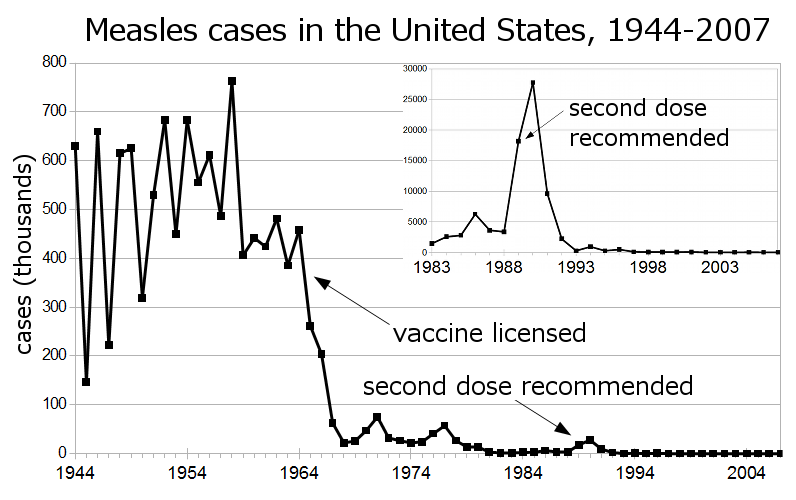
So, here are Six Reasons I Can Confidently and Unequivocally State that Vaccines DO NOT cause Autism:
- The vast majority of people who get vaccines (typical timeline or not) DO NOT have Autism:
According to CDC data, the percentage of children between the ages of 19-35 months who receive vaccinations for Measles Mumps Rubella is 92% and Diphtheria Tetanus Pertussis (85%). The rate of Autism is 1/68 children in the US (approximately 1.5%). These numbers are vastly different. If 92% of kids get immunized with the MMR vaccine and only 1.5% of all kids have autism, how can one establish a causal relationship between the two? It makes no sense—you would expect way more kids to be diagnosed with Autism if the Measles vaccine caused Autism.
- The science is in: Multiple studies (Click here, here, here, and here) have shown no link between vaccines or components of vaccines (like Thimerosol) and Autism. The fact that someone would choose to believe one discredited study over multiple peer-reviewed studies that have survived the scientific process is mind-boggling.
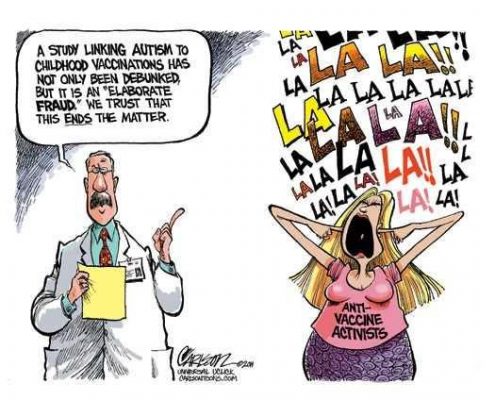
3. Furthermore, THE SCIENCE IS IN: A 2015 study (click here) published in JAMA—Journal of American Medical Association (one of the most prestigious medical science journals on the planet) that aimed to report Autism Spectrum Disorder (ASD) occurrence by MMR vaccine status in a large sample of US children who have older siblings with and without ASD, found that MMR vaccine was not associated with increased risk of ASD, regardless of whether older siblings had ASD. Their findings indicate that there is no harmful association between MMR vaccine receipt and ASD even among children already at higher risk for ASD (children who have older siblings with ASD). These findings have held true in my little microcosm—my older son has ASD and my younger son does not and both of them received the MMR vaccine on the same time table and at the same age.



Autism Speaks, an organization founded in 2005 whose mission is dedicated to promoting solutions, across the spectrum and throughout the lifespan, for the needs of individuals with autism and their families, lauded this very article (click here).
- For real though, THE SCIENCE IS IN: A study published in the Journal of Pediatrics (click here) that looked to evaluate the association between autism and the level of immunologic stimulation received from vaccines administered during the first 2 years of life showed that the total amount of antigen from vaccines received was the same between children with ASD and those that did not have ASD.

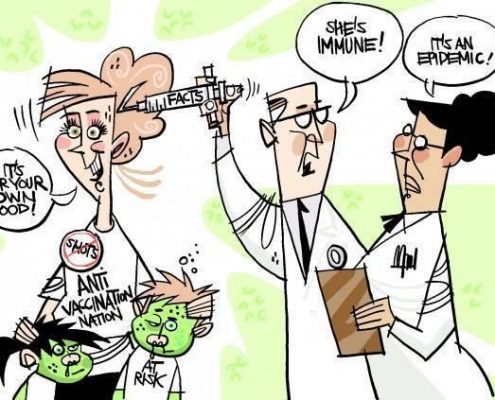
- Pharmaceutical industries do not make so much money on Vaccines that it would make sense for them to suppress findings of links between vaccines and Autism just to keep the cash from Measles vaccines flowing: Historically, actually, vaccine research has struggled to find support and funding due to the low prices of vaccines (especially in the 80s). In fact, a combination of high production costs, low prices and heavy regulation by the FDA often led to vaccine shortages. Profitability in the vaccine industry occurred because of increased global demand of vaccines and the arrival of specific vaccines that could turn a profit in developing countries (vaccines like Hepatitis B Vaccine). However, while one estimate puts the vaccine industry at $24 billion value, this is a mere 2-3% of the value of the TRILLION dollar big pharma industry as a whole. In fact, the vaccine industry needs incentives to continue to produce vaccines if not we may return to the era of vaccine shortages. Big Pharma would actually stand to make way more revenue from treatments/medications aimed at handling complications of preventable childhood illnesses like Measles than from preventing them with vaccines. Click here for a great article on this topic.
- Vaccines actually drive down health care costs (and therefore decrease the amount of profit the health care industry stands to make): A *2014 study published in Pediatrics estimated that each dollar invested in vaccines and administration, on average, resulted in $3 in direct benefits and $10 in benefits when societal costs are included, so basically fully immunizing babies resulted in $10 saved for every dollar spent, about $69 billion total. Think about it, the lifetime cost of Autism Spectrum Disorder and complications of preventable childhood diseases like Measles and whooping cough would actually be far greater than the cost of fully vaccinating children, so if the health care industry were primarily driven by revenue generation and increasing profit margin on the backs of ill children, encouraging vaccination would not be the way to go. Click here. *Zhou F, Shefer A, Wenger J, et al. Economic evaluation of the routine childhood immunization program in the U.S., 2009. Pediatrics 2014;133:577–85.
Comparing Measles versus Measles Vaccine
Some antivaxxers, having been challenged now with arguing about vaccine-autism link in the face of all this evidence against such a link, are now changing tactics and arguing instead that vaccines have such a harmful side-effect profile and cause so many complications for children that it justifies their stance of avoiding the measles vaccine or being cautious about it. It is important to note that the most common side-effects of the MMR vaccine are pain/redness/swelling at the site of injection, fever, rash, mild joint pain, and headache. Do you know what the most common complications of Measles are? Click here Mild complications: Fever, Conjunctivitis, ear infections (1 out of 10 children with measles will develop ear infections that put them at risk for hearing loss), diarrhea and dehydration.

This is what measles really looks like
Severe complications: Pneumonia (1 out of 20 children with measles will develop pneumonia which is the most common cause of death from Measles in young children); Encephalitis (1 out of every 1000 children with measles will develop encephalitis—brain swelling—that can leave a child deaf or with intellectual disability; Death (1-2 out of every 1000 children with measles will die from it). The risk of developing Encephalitis from the measles vaccine is reported at <1 per 1 MILLION doses. Also, another Measles complication, Subacute Sclerosing Panencephalitis (SSPE—very bad brain disease) has essentially been eliminated by the Measles Vaccine because vaccine strain measles virus has never been identified in patients with SSPE.
In 2015, the World Health organization (WHO) reported (click here) that there were 134200 measles deaths globally (367 deaths per day/15 deaths per hour). WHO also reported that between 2000 and 2015, the Measles vaccine prevented approximately 20.3 Million deaths. In 1980 before the era of widespread measles vaccination, Measles caused an estimated 2.6 million deaths per year. Global measles deaths have decreased from 651600 in 2000 to 134200 in 2015 (almost all deaths are children <5 years of age).
Appeal for Logic
I used to moonlight a lot as a Pediatric Emergency Room doc at a prominent medical center, and I have taken care of many patients with intestinal injuries and chest injuries from seat belts. These children survived without brain injuries. Would it be wise then for me to conclude that seat belts are dangerous because they injure children’s chests and bellies and we need to be more “cautious” with seat-belts or avoid them altogether? I don’t think so—that would be very foolish because it is very clear that seat-belts save lives and we are more willing to take on the risk of rare seat-belt complications than the greater risk of more severe motor vehicle accident complications like severe brain injuries, multiple fractures, internal organ injuries or bleeding, and death) that occur with non-belted passengers. I will take my chances with the Measles vaccine over Measles itself any time!
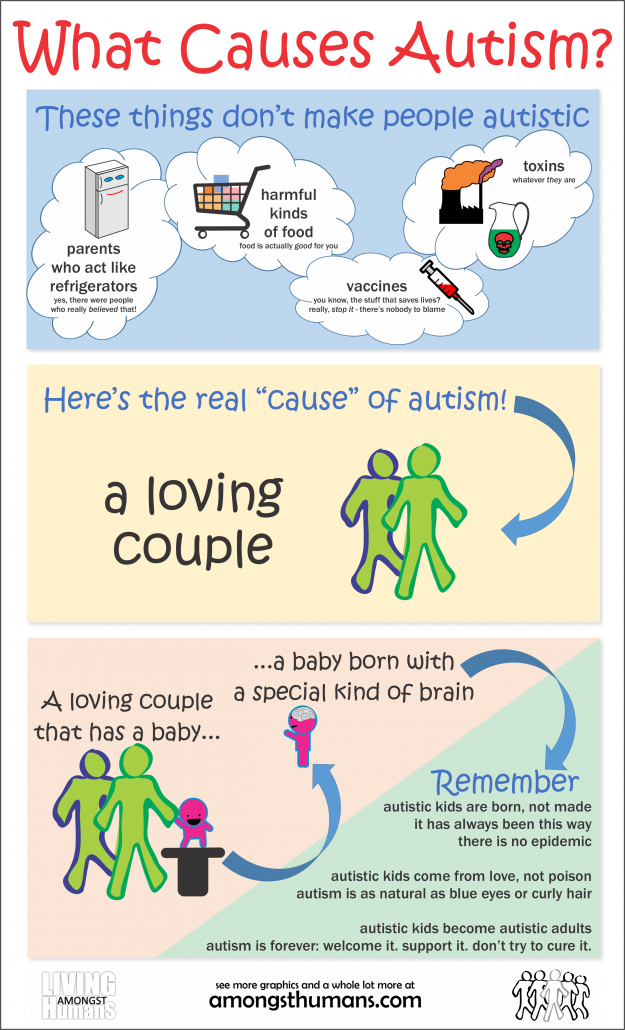
I would love to hear your thoughts on this topic. Please share them in the comment section below and let’s grow together, building a strong community of lifelong learners.
Love, Chichi







Well said, well written. The recent measles outbreak in Minnesota is an unfortunate product of the also unfortunate anti-vaccination campaign. The six points you laid will help in keeping this discussion quick and simple and I will be sure to use them as talking/debating points. Vaccines do not cause autism. Thanks!
This Measles trend is so unfortunate. We need to do whatever we can to fight against misinformation. I am so glad you find this article helpful…I so appreciate the feedback. Please share it freely and thanks so much for stopping by.
Wonderful and well put!
Thank you so much for the feedback. Please share with folks who you think may benefit from the article. Cheers 🙂